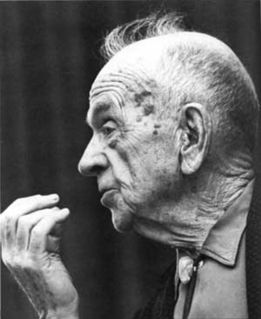A Quote by Michael Dirda
I do think digital media encourages speed-reading, which can be fine if one is simply seeking information. But a serious novel or work of history or volume of poetry is an experience one should savor, take time over.
Related Quotes
I think theoretically if a man is young and healthy society should not give him a basic income. He should not be given dole. He should not be eligible for welfare. If he can work and if there is work available, he should take his choice. If he wants to be a hermit or beggar, that's fine. If he wants to move with the sun and live off the land, that's fine. If he is in a society which has work for him I don't think he should theoretically be eligible for welfare.
We live in a cluttered culture, a culture of information in which even our computers can't tell us what's worth knowing and what is merely cultural scrap. In such a society, we don't have the experience of contemplative space, of the time or mood to engage a book of poetry or even read a novel. Who can achieve the unconscious-conscious state of the reader when everything is stimulation, everything is movement and information?
Look, three love affairs in history, are Abelard and Eloise, Romeo and Juliet and the American media and this President at the moment. But this doesn't matter over time. Reality will impinge. If his programs work, he's fine. If it doesn't work, all of the adulation of journalists in the world won't matter.
I like a novel to have a certain amount of dead time and filler - unremarkable scenery, descriptions of getting from point A to point B, dialogue in which not much is said - in between the parts that are electric. With a long work that you don't read in one sitting, I think that makes for the best reading experience.
I would say there are different kinds of poems. There are things that poets in the history of poetry hit upon when they're very young that can never be outdone and it's a remarkable, strange experience when you think of say Arthur Rimbaud who write poetry between the ages of 17 and 21 whose career was over by the time he was 22.
There's something immediate about the experience of reading a poem. It makes sense in my own mind, but I'm trying to figure out a way to articulate it... It's like looking at a painting: you're able to take in the totality of the work all at once, and so processing whatever information that painting is giving you is almost secondary to simply apprehending what's in front of you.




































